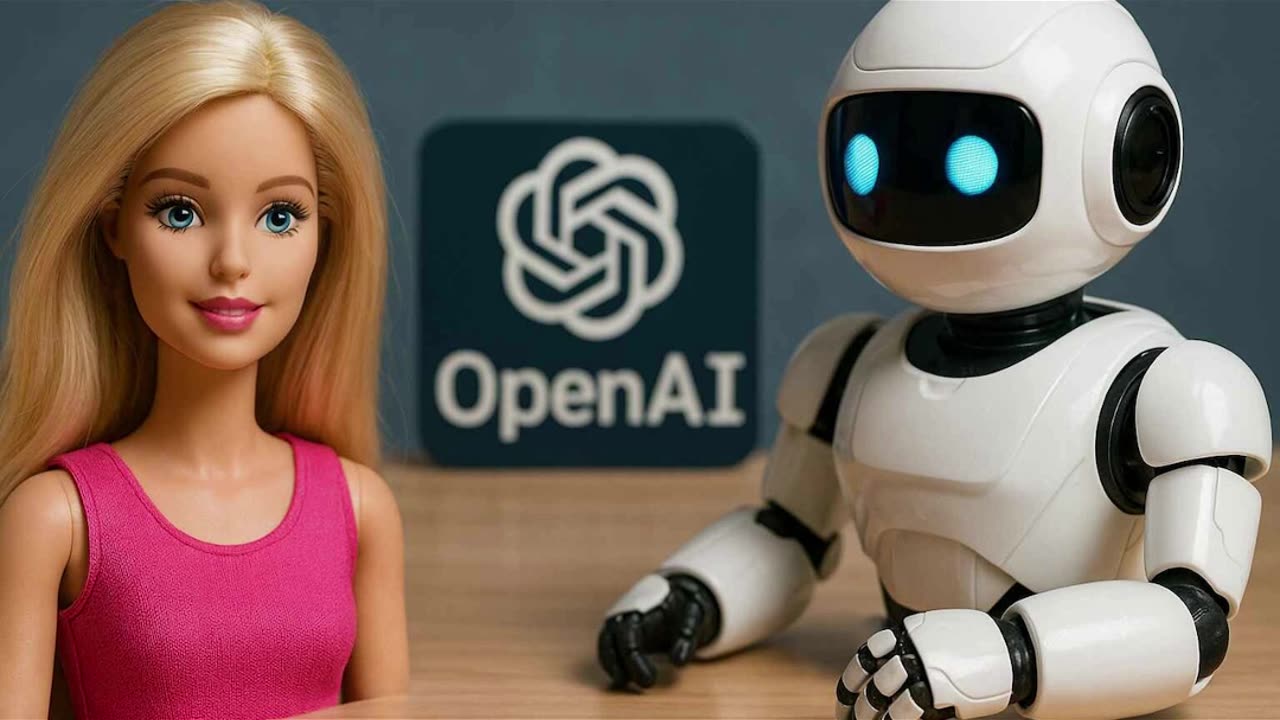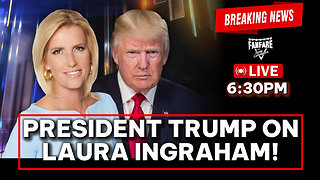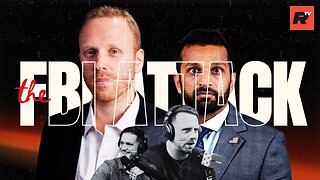Premium Only Content

AI Toys: Innovation or Danger?
In a twist straight out of a Black Mirror episode, Mattel, the iconic toy company, has teamed up with OpenAI, the creators of ChatGPT, to develop a line of artificial intelligence-powered toys.
According to a recent announcement, these toys—expected to hit the market by late 2025—promise “dynamic interactions” with their own voices, personalities, and evolving stories. Say goodbye to the static Barbie—hello to the Barbie who might lecture you on climate change!
But is this innovation a leap into the future of play, or an open door to progressive indoctrination disguised as children’s entertainment? The news, confirmed by multiple sources, indicates that Mattel will integrate OpenAI’s technology not only into its toys but also across its business operations through the OpenAI Enterprise platform.
Can you imagine a Hot Wheels car debating gender equity while racing down the track? The toys could “react to their environment or to what the child does, learning over time.” This raises an important question: what data will these talking dolls collect, and how will it be used?
OpenAI, known for its ideological bias toward the left, has been criticized for imbuing its language models with progressive stances.
A recent study revealed that OpenAI models, like those powering ChatGPT, tend to favor positions that support economic and social equality, aligning with figures like Lula da Silva in Brazil or the Labour Party in the UK. What if these dolls start whispering social justice or inclusivity ideas to children—like Gemini, Google’s AI that enthusiastically embraces “wokeism”? It’s almost laughable to imagine progressives celebrating Barbie quoting Greta Thunberg while kids just want her to drive her convertible.
Mattel, famous for Barbie and Hot Wheels, says it wants to “capture the imagination of generations” with this alliance. However, integrating AI into toys brings serious risks. Gateway Pundit has repeatedly warned how Big Tech companies like OpenAI prioritize ideological agendas over neutrality. Who guarantees these toys won’t become tools of covert propaganda?
Conservative parents—already fed up with woke culture infiltrating schools—will now have to monitor what Barbie is telling their kids. OpenAI’s AI, trained on vast datasets, has faced criticism for its lack of transparency. What happens if these toys start “learning” from children and collecting personal data without clear consent?
OpenAI has admitted its models can reinforce “negative behaviors” if not properly regulated, but its track record doesn’t inspire confidence. The market, however, is excited. Mattel’s stock rose after the announcement, and the first toys are expected in time for Christmas 2025. But at what cost? AI-powered toys could transform the play experience, offering personalized interactions that go beyond traditional toys. Yet the risk of these dolls becoming mouthpieces for a progressive agenda is real. Isn’t it ironic that the same progressives who criticize consumerism now applaud a Barbie that brainwashes children while Mattel cashes in?
The Mattel-OpenAI alliance is a bold experiment—but also a minefield. Parents will need to stay vigilant: not just about what their kids are playing with, but about what their toys are teaching them. Because, of course, nothing says “innocent childhood” like a Barbie giving you a lecture on diversity while you brush her hair.
-
 0:51
0:51
Gateway Hispanic
14 hours agoSantiago Abascal defends sovereignty and patriotism: “Vox is the party of the Spaniards”
994 -
 2:54:31
2:54:31
TimcastIRL
6 hours agoIllegal Immigrant ARRESTED After Shooting At DHS, War ERUPTS In Chicago
278K135 -
 LIVE
LIVE
Drew Hernandez
1 day agoMARK LEVIN CRASHES OUT & TRUMP SEEKS HOUSING CRISIS SOLUTION
493 watching -
 6:29:18
6:29:18
SpartakusLIVE
8 hours ago#1 King of Content leaves your Monday UTTERLY MOTIVATED
38.8K1 -
 2:47:40
2:47:40
Barry Cunningham
9 hours agoBREAKING NEWS: WATCH PARTY WITH PRESIDENT TRUMP ON THE LAURA INGRAHAM SHOW (AND MORE NEWS)
157K35 -
 2:36:50
2:36:50
Blabs Games
15 hours agoLet's Get Those 5 Stars! Jurassic World Evolution 3 Playthrough #7
52.1K5 -
 1:03:59
1:03:59
Flyover Conservatives
1 day ago$117K Paywall to Protect School’s Indoctrination? The Education System’s Biggest Secret w/ Nicole Solas | FOC Show
44.8K1 -
 2:31:34
2:31:34
We Like Shooting
17 hours ago $5.11 earnedWe Like Shooting 636 (Gun Podcast)
34.7K2 -
 1:53:24
1:53:24
RiftTV
7 hours agoFBI Director Kash Patel Sues Elijah Schaffer for $5 MILLION?!
62.4K35 -
 3:58:07
3:58:07
DannyStreams
5 hours agoPutting this here until we get noticed
25.8K1